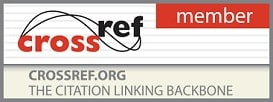
- Printed Journal
- Indexed Journal
- Refereed Journal
- Peer Reviewed Journal
Impact Factor: Impact Factor(RJIF): 5.3
International Journal of Home Science
2020, VOL. 6 ISSUE 2, PART E
A Comparative study on intellectual abilities of rural and urban preschoolers
Author(s): Pushpa Lata Kumari
Abstract:
Intellectual ability refers to the skill required to think and reason. Memory, creativity, problem solving and vocabulary development also contribute to the level of an individual. With increase in age children acquire more social skills due to improvement in intellectual abilities. The present study was conducted with the aim to compare the intellectual abilities of rural and urban preschoolers. The study was conducted in Hisar city of Haryana state. A total of 200 preschoolers were selected from both rural (100) and urban (100) areas from the age groups of 2-4 years. The preschoolers comprised of 25 boys and 25 girls in each group viz 2-3 yrs and 3-4 yrs. Standford Binet Intelligence scale was used to measure intelligence of preschool children. The study elucidates that mean performance of children for intelligence revealed no significant differences in I.Q over age groups and gender but significant difference for intelligence in the age group of 2-3 yrs(z=2.39*) and in the age group of 3-4 yrs(z=5.34*) over location was observed. The study concludes that children from urban areas surpassed children from rural areas in their intelligence.
Intellectual ability refers to the skill required to think and reason. Memory, creativity, problem solving and vocabulary development also contribute to the level of an individual. With increase in age children acquire more social skills due to improvement in intellectual abilities. The present study was conducted with the aim to compare the intellectual abilities of rural and urban preschoolers. The study was conducted in Hisar city of Haryana state. A total of 200 preschoolers were selected from both rural (100) and urban (100) areas from the age groups of 2-4 years. The preschoolers comprised of 25 boys and 25 girls in each group viz 2-3 yrs and 3-4 yrs. Standford Binet Intelligence scale was used to measure intelligence of preschool children. The study elucidates that mean performance of children for intelligence revealed no significant differences in I.Q over age groups and gender but significant difference for intelligence in the age group of 2-3 yrs(z=2.39*) and in the age group of 3-4 yrs(z=5.34*) over location was observed. The study concludes that children from urban areas surpassed children from rural areas in their intelligence.
Pages: 242-244 | 474 Views 218 Downloads

How to cite this article:
Pushpa Lata Kumari. A Comparative study on intellectual abilities of rural and urban preschoolers. Int J Home Sci 2020;6(2):242-244.





